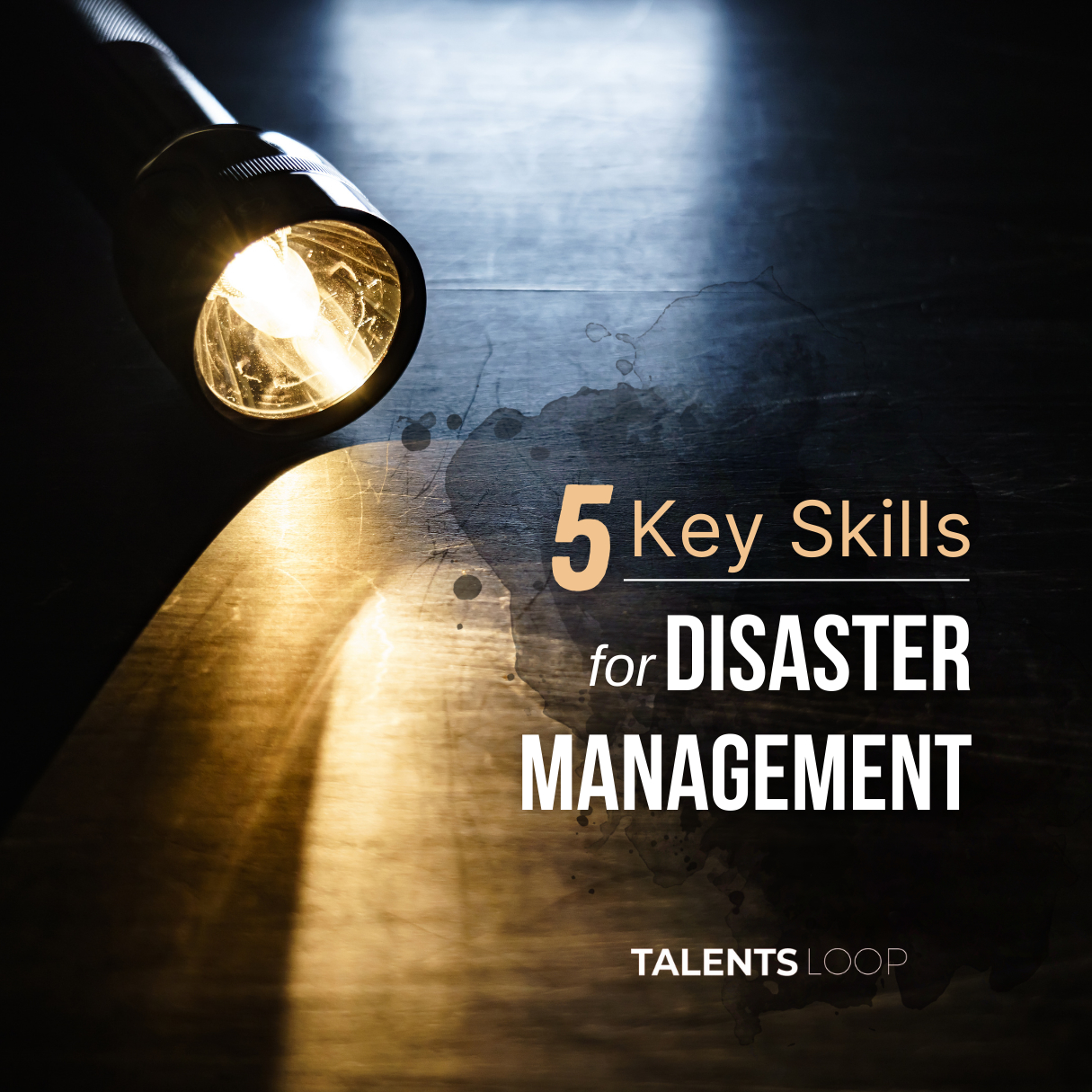
Developing key skills for DISASTER MANAGEMENT
According to the United Nations, a disaster is any event that seriously disrupts a community or society’s ability to function; a disaster’s impact may be human, economic or ecological.
Disaster management means preparing for potential calamities and responding to them as quickly, strategically and effectively as possible. Typically, this involves following the basic disaster management cycle, which comprises 5 crucial stages:
- 1- Prevention
- 2- Mitigation
- 3- Preparedness
- 4- Response
- 5- Recovery
Any organization or municipality can be hit with a disaster sooner or later, whether that’s something as minor as a temporary power outage or as threatening as a earthquake, flood, hurricane or fire. To effectively coordinate disaster managmenet cycle, leaders must develop a number of critical skills for each stage of the cycle.
- Prevention: Strong analytical skills help leaders identify potential threats, hazards and high-risk areas. Problem-solving abilities are also invaluable in identifying the best ways to avoid or diminish the likelihood of catastrophic events.
- Mitigation: Planning is an important skill during the mitigation stage; the disaster-management leader will need to develop strategies and structural changes that can help mediate potential threats. Spreading awareness is also critical.
- Preparedness: It’s important to be skilled in training people to respond to disasters. Also it’s important to use oral and written communication skills for action in worst-case scenarios.
- Response: The ability to quickly make decisions is crucial. Another valuable skill is delegating essential tasks to other volunteers or emergency responders.
- Recovery: The most essential skills are empathy, understanding and relationship building; indeed, without earning the trust of the community, any recovery efforts are likely to come up short.
